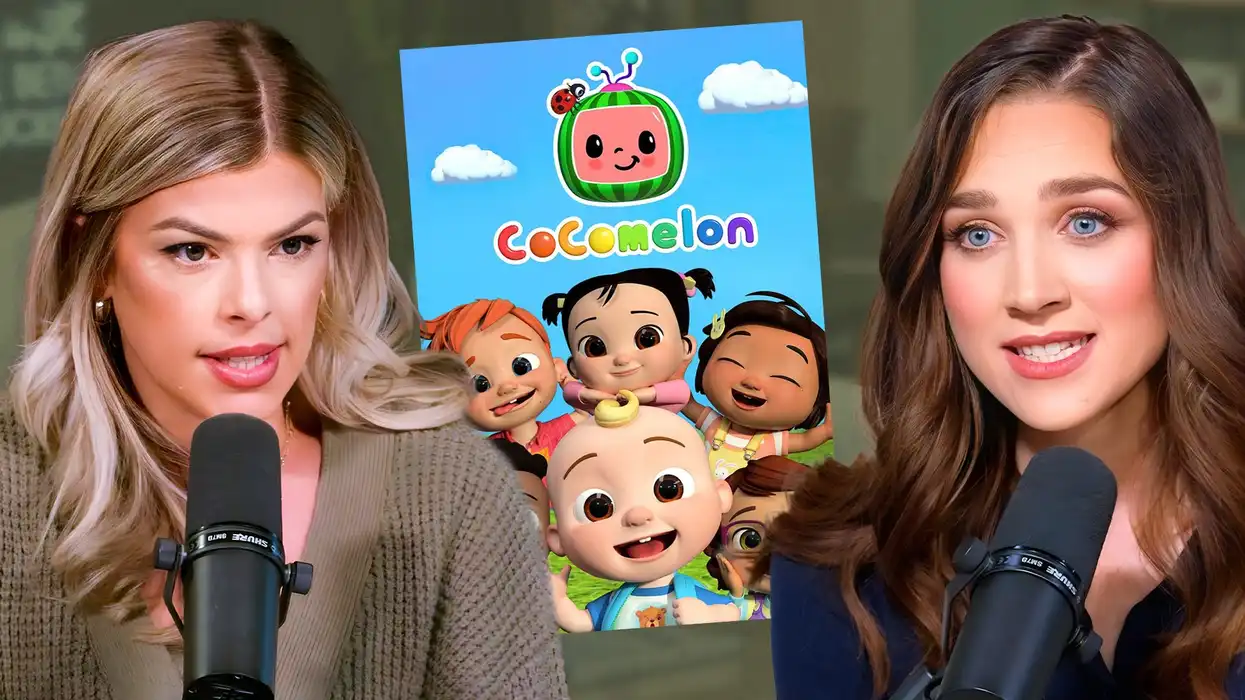
© 2026 Blaze Media LLC. All rights reserved.
Stop letting your children watch this popular show — it’s frying their brains on purpose
June 02, 2025
Look up which shows are most popular among children these days, and you’re sure to find Netflix’s "CoComelon" at the top of the list. The animated series prides itself on teaching preschoolers basic concepts like letters, numbers, colors, shapes, and social skills through catchy nursery rhymes, original songs, and colorful 3D animation. Emphasizing positive themes such as kindness, sharing, and problem-solving, "CoComelon" seems benign, perhaps even beneficial, to parents who need a moment’s peace or a few minutes to prepare a meal.
However, a deeper dive into the making of the series reveals a sinister truth: The creators are purposely frying children’s brains.
To dive into this controversy, Allie Beth Stuckey of “Relatable” invites Clare Morell, author and fellow at the Ethics and Public Policy Center, to the show to share her knowledge.
Morell, citing a New York Times article, says that researchers at Moonbug Entertainment, the British children’s content company behind "CoComelon," test child subjects in front of two screens. One airs an episode of "CoComelon"; the other, dubbed the “Distractatron,” runs through mundane footage — “ a mom cooking dinner, a dad vacuuming.” A team of note-taking researchers observes from a glass room.
“Any time the child looked away from "CoComelon" and found the real-life scene more interesting, the episode makers would note that down, where that time stamp was within the show, and then they'd go back and they'd add more music, brighter lights, flashing colors to that point in the show because they want it to be immersive and addictive to a child,” says Morell.
So what kind of digital content is safe for young children, then?
According to Morell, none.
“The brain is in really critical periods of development, especially in those early years, and the problem is that screens are way overstimulating for a child's developing nervous system, and studies show that handing devices to these young children robs them of their ability to develop emotional regulation,” she explains. “Instead of developing patience and self-control and frustration tolerance, they're just learning to be calmed by a screen.”
Screen time limitations, she says, unfortunately, are ineffective.
“A daily screen time limit — even if it's a short amount of time — is incredibly habit-forming,” she tells Allie. Like "CoComelon," “devices are made to be addictive to a child's brain.”
“The problem is that the screen time limits don't map on to a child's mental or emotional time that is then spent craving more and more of that device because of the dopamine in the brain,” Morrell explains. “They're going to constantly crave more, and it really disregulates their developing nervous system, and so it's really important to protect those young years.”
To hear more of the conversation and learn how to protect not just your young children but also your teenagers from the harms posed by screens, watch the episode above.
Want more from Allie Beth Stuckey?
To enjoy more of Allie’s upbeat and in-depth coverage of culture, news, and theology from a Christian, conservative perspective, subscribe to BlazeTV — the largest multi-platform network of voices who love America, defend the Constitution, and live the American dream.
Want to leave a tip?
We answer to you. Help keep our content free of advertisers and big tech censorship by leaving a tip today.
Want to join the conversation?
Already a subscriber?
News, opinion, and entertainment for people who love the American way of life.
BlazeTV
BlazeTV Staff
News, opinion, and entertainment for people who love the American way of life.
@BlazeTV →more stories
Sign up for the Blaze newsletter
By signing up, you agree to our Privacy Policy and Terms of Use, and agree to receive content that may sometimes include advertisements. You may opt out at any time.
Related Content
© 2026 Blaze Media LLC. All rights reserved.
Get the stories that matter most delivered directly to your inbox.
By signing up, you agree to our Privacy Policy and Terms of Use, and agree to receive content that may sometimes include advertisements. You may opt out at any time.






